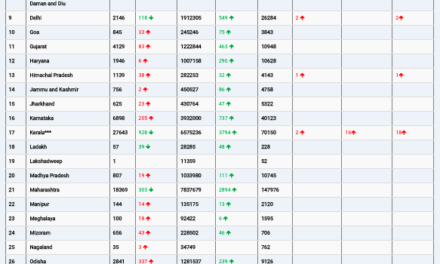A groundbreaking study led by researchers at the RIKEN Center for Integrative Medical Sciences (IMS) in Japan has found that consuming meat and milk proteins could play a crucial role in preventing tumor growth in the small intestines. The research, published in Frontiers in Immunology, reveals that these proteins trigger an immune response that suppresses tumor formation, providing new insights into dietary interventions for gut health.
Meat and Milk Proteins as Tumor Suppressors
According to the study, proteins found in meat and milk act as antigens—foreign substances that activate the body’s immune system—which can stop the development of new tumors in the small intestines. While small intestinal tumors are much rarer than those found in the colon, individuals with familial adenomatous polyposis, a hereditary condition that predisposes them to colon cancer, face a higher risk. This finding could have implications for the management of such patients, particularly in those undergoing treatment for inflammatory bowel disease (IBD) or other gastrointestinal conditions.
Lead researcher Hiroshi Ohno from RIKEN IMS emphasized the importance of the study’s findings: “The risk of small intestinal tumors is higher in familial adenomatous polyposis patients. Therefore, the clinical use of elemental diets in these individuals must be carefully considered.”
Antigens and the Immune Response
In the study, the researchers explained that the immune system generally views food antigens—proteins from foods such as meat, milk, plants, and beans—as foreign substances that need to be scrutinized. Previous research had already shown that these antigens activate immune cells in the small intestine. Once activated by gut bacteria, these immune cells can suppress tumors in the gut.
To investigate whether food antigens directly influence tumor suppression, the researchers conducted experiments on mice. In one experiment, mice were fed either a normal diet or an antigen-free diet. The results showed that the mice on the normal diet developed fewer tumors in the small intestines, though the number of tumors in the large intestines remained unchanged.
Albumin: A Key Antigen in Tumor Suppression
The research team took their investigation further by introducing albumin, a protein found in meat, into the antigen-free diet of the mice. This adjustment ensured that the total protein intake matched that of the normal diet. Remarkably, the introduction of albumin suppressed tumor development in the small intestines, confirming that the tumor-suppressing effects were directly linked to the presence of food antigens rather than the nutritional value of the food itself.
Additionally, the diets reduced the number of T cells—immune cells involved in protecting the body from disease—in mice fed a plain antigen-free diet compared to those given normal food or the antigen-free diet supplemented with milk protein. This discovery underscores the role of specific food proteins in supporting immune function and preventing tumor formation.
Caution Urged for Clinical Application
While the findings open up new possibilities for dietary interventions in preventing small intestinal tumors, the researchers urged caution. They highlighted the risks of following an antigen-free or specialized diet without medical supervision and recommended that such diets should only be adopted under a doctor’s guidance, particularly for individuals at higher risk for gastrointestinal conditions.
The study offers a promising avenue for further research into how everyday foods can modulate the immune system and contribute to cancer prevention. However, more studies are needed to understand the long-term effects of such diets in humans and how they can be effectively applied in clinical settings.












